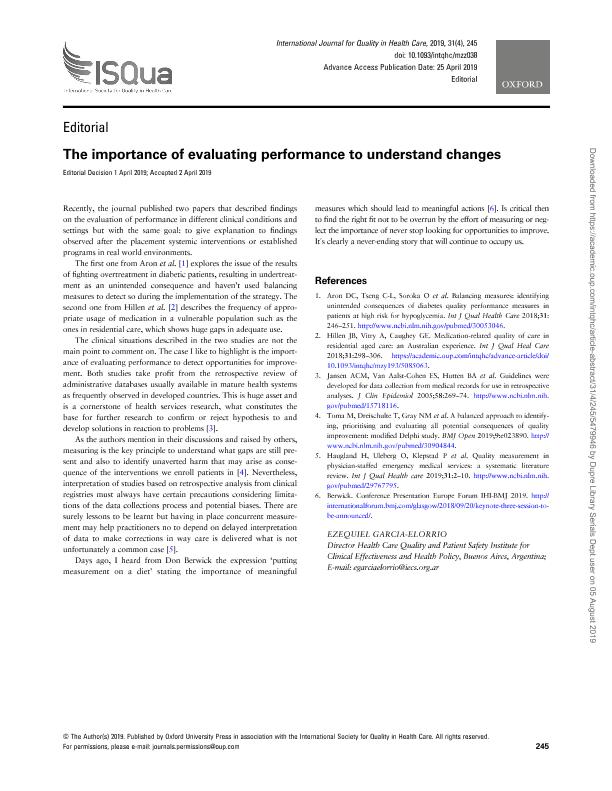Artículo
The importance of evaluating performance to understand changes
Fecha de publicación:
05/2019
Editorial:
Oxford University Press
Revista:
International Journal For Quality In Health Care
ISSN:
1353-4505
e-ISSN:
1464-3677
Idioma:
Inglés
Tipo de recurso:
Artículo publicado
Clasificación temática:
Resumen
Recently, the journal published two papers that described findings on the evaluation of performance in different clinical conditions and settings but with the same goal: to give explanation to findings observed after the placement systemic interventions or established programs in real world environments. The first one from Aron et al. explores the issue of the results of fighting overtreatment in diabetic patients, resulting in undertreatment as an unintended consequence and haven’t used balancing measures to detect so during the implementation of the strategy. The second one from Hillen et al. describes the frequency of appropriate usage of medication in a vulnerable population such as the ones in residential care, which shows huge gaps in adequate use. The clinical situations described in the two studies are not the main point to comment on. The case I like to highlight is the importance of evaluating performance to detect opportunities for improvement. Both studies take profit from the retrospective review of administrative databases usually available in mature health systems as frequently observed in developed countries. This is huge asset and is a cornerstone of health services research, what constitutes the base for further research to confirm or reject hypothesis to and develop solutions in reaction to problems.
Palabras clave:
Evaluating performance
,
Health
Archivos asociados
Licencia
Identificadores
Colecciones
Articulos(SEDE CENTRAL)
Articulos de SEDE CENTRAL
Articulos de SEDE CENTRAL
Citación
Garcia Elorrio, Ezequiel; The importance of evaluating performance to understand changes; Oxford University Press; International Journal For Quality In Health Care; 31; 4; 5-2019; 245-245
Compartir
Altmétricas




